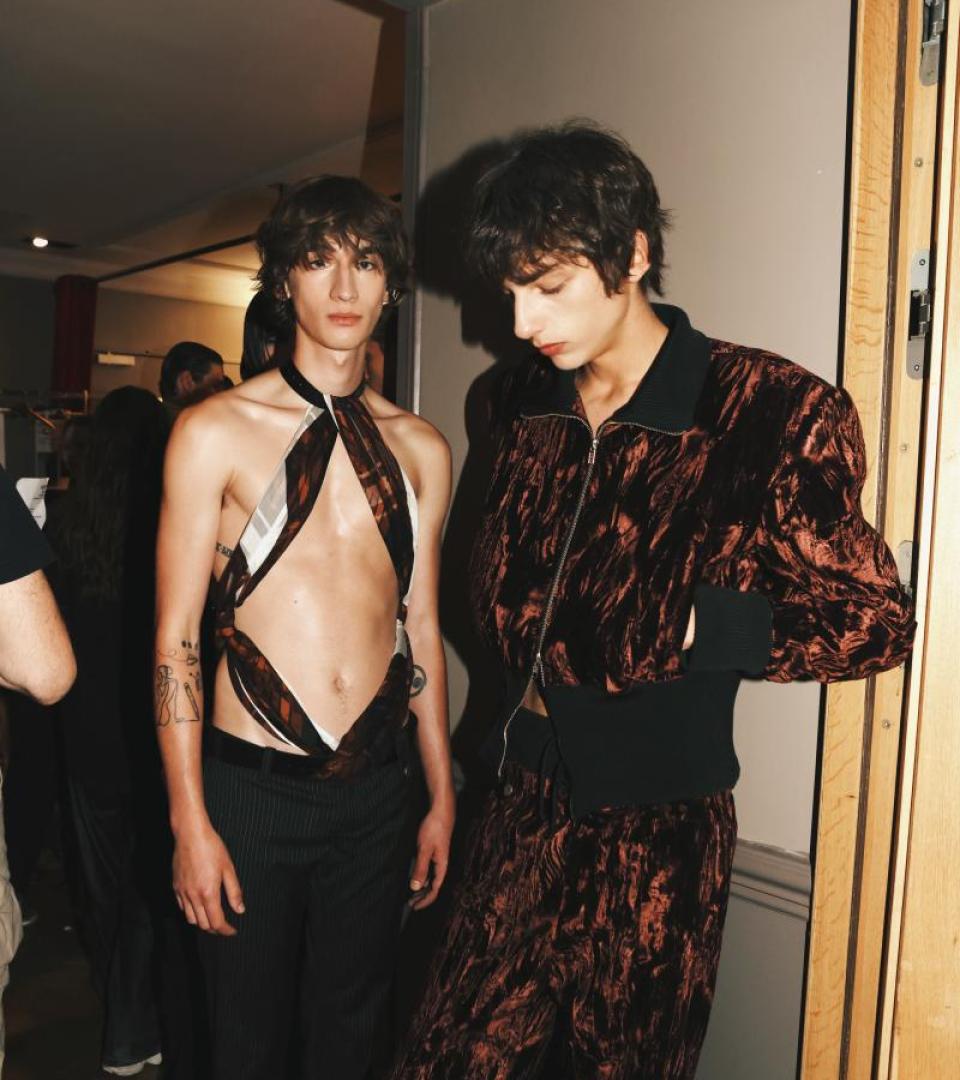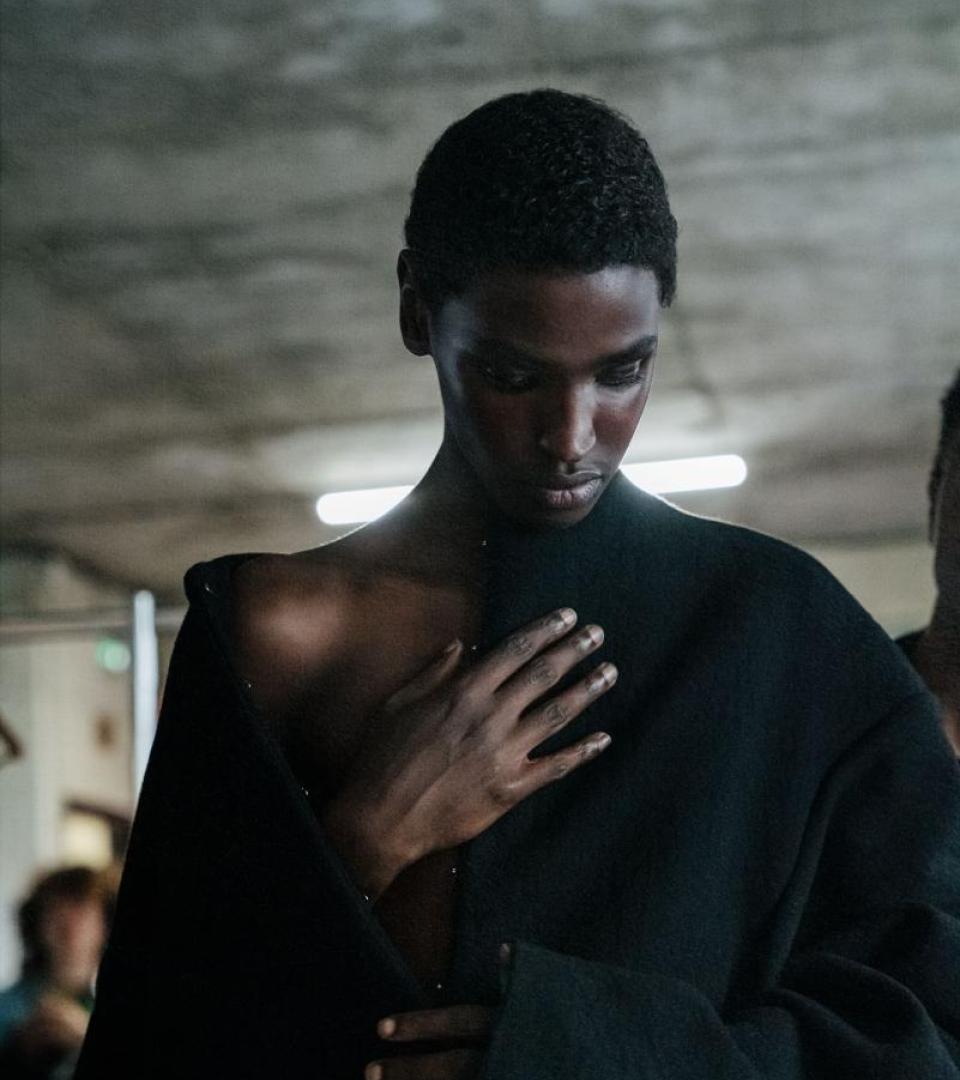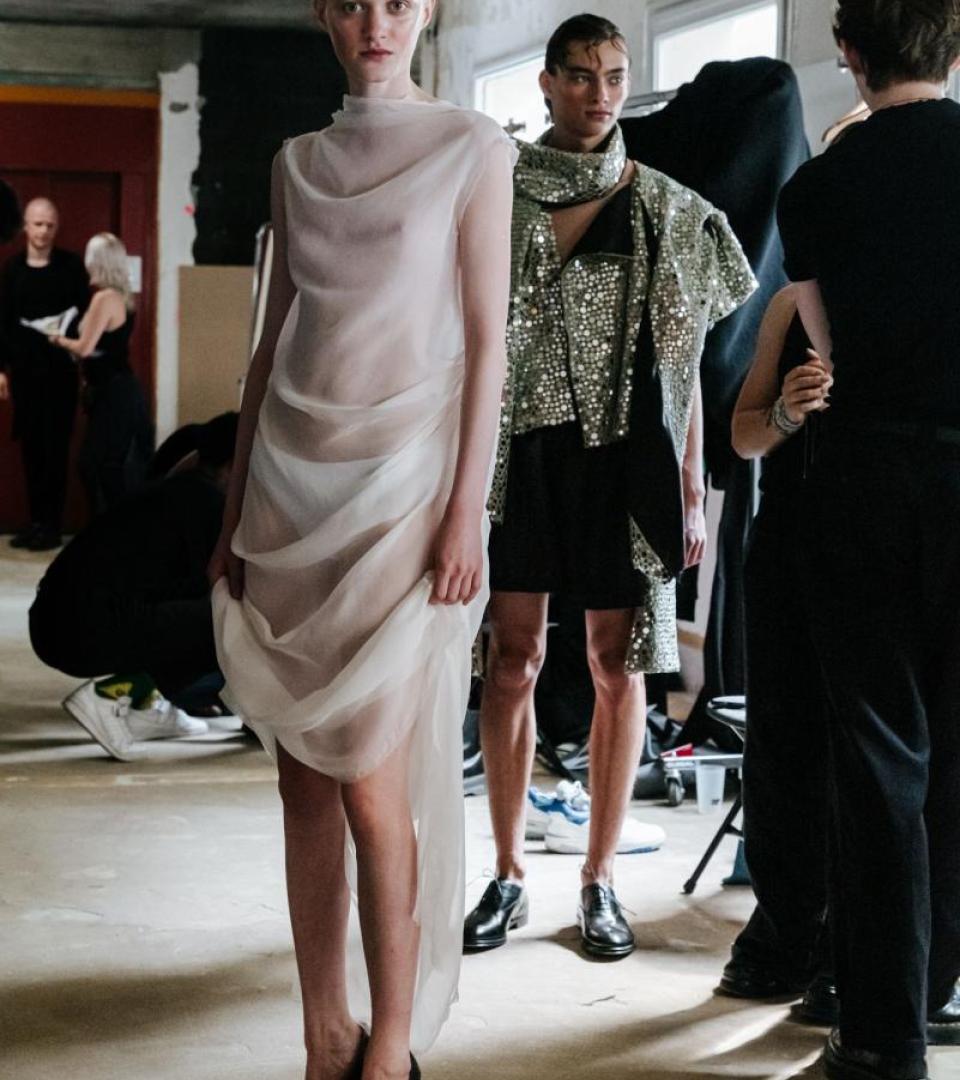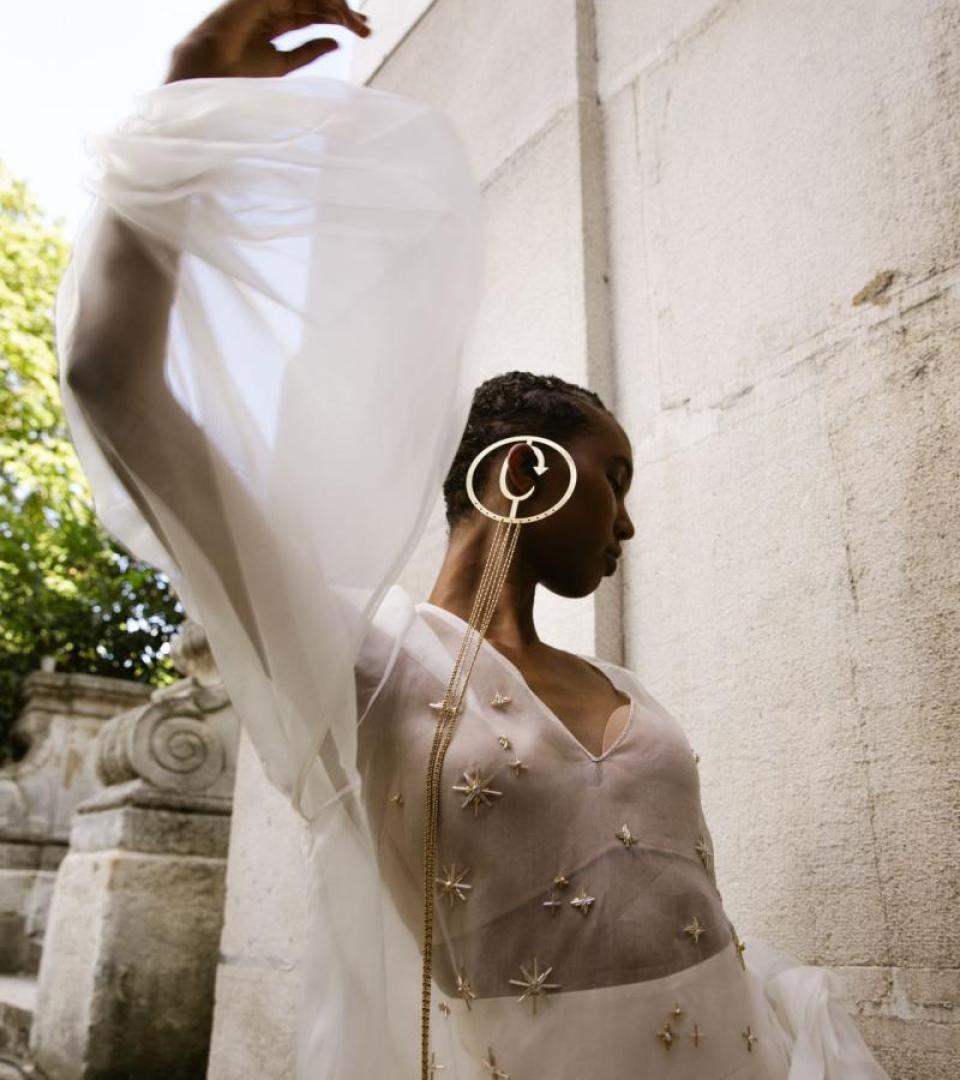Robert Wun
Robert Wun's sharp aesthetic immediately broke in the Haute Couture Calendar in January 2023 when he debuted as a guest member of the Fédération de la Haute Couture et de la Mode. But the Hong Kong-born, London-based fashion designer actually launched his brand in 2014 after graduating at the London College of Fashion in 2012. Since then, his work has been focused on custom orders — including shoes and accessories — while his unique tailoring draws inspiration from movies and the world of nature. In 2022, he was the Grand Prix Winner of the ANDAM Fashion Awards.
In what ways do you think AI might benefit fashion?
I'm not so sure yet which perspective it will be beneficial. I just feel that it's something for more practical matters like technology, science, navigation, infrastructure or even medical or space ventures. Fashion is a creative industry, it needs that human touch and experience. So I don't think I will ever be able to replace those elements because the creative process is flawed. In AI there's no pain, no history and no understanding of why something should be created because it simply never lived through it. In things that are not perfect you feel the sensation of art and humanity itself. AI exists for perfection, but I don't think anything related to creativity in a perfection format is creative at all.
Who or what will drive the greatest change in fashion this year?
I think it's very hard for any individual, like a singular person or singular thing, to make a huge impact anymore—just because we are in more of a community mindset. We are more in a sense of an interconnecting era. Everyone is overwhelmed by information through the screen on their hands. So I think people are not easily impressed or blown away anymore, which is not necessarily a bad thing. The only thing I would say that can be a huge impact on fashion this year it's going to be the young generation. I always have faith in them —how they can teach people how they can change things in bringing the new narrative into it. So I wouldn't say it's one individual, but youth. They stand for hope and future.
Can you suggest a fashion mantra for 2024?
To be more graceful and easier to myself. During the past year, I've learned how to be more confident in what I have to say — not confident about myself, but in what I'm passionate about. And I feel this coming collection is exactly the embodiment of that. It doesn't need to be about fashion. For example, it could be just about a scientist that I'm obsessed with that is studying fungus and mushrooms; how he's passionate about them; that he believes that he will find a meaning of life. Back then I would be hesitant to share that with the people in the industry because I feel like maybe they wouldn't understand or maybe they will think that this is too nerdy. But this new year, I want to be more confident.
What impact might you hope to have on fashion?
I never want any impacts, to be honest. And I just want to be a good designer and that I can look back on this even if I succeed or fail. I don't want to have any regrets. But maybe the only positive impact is that I wish our generation of young designers should be considered for their talent, abilities, visions, skills and not just categorised as we are coming from different countries or cultures. I feel that sometimes we can only talk about or succeed when we fit into a certain spectrum like our work needs to be about our heritage, our struggle; or every time people write about it being about "all the designers from Hong Kong," or "this incredible designer from Africa," or "the ten best Asian designers.” I feel like it's always being put in a box and it's never been my aim to be the best Asian. Actually, I want to be one of the best designers. I feel like that is the only impact that we strive for; that we shouldn't only be celebrated because of our minority background. If we talk about true equality, we should be as equal as all the great designers. I just talk about our work, not about our heritage only. That's my only opinion and maybe I just want to be that designer that breaks this cycle.
In these fast paced times, how do you think the slowness of Haute Couture can survive?
I just feel it's not something that can disappear because there is so much art and craft that goes into it. It's almost like the antique furniture and all the craftsmanship needed to make it unique. There's always new technology by new furniture designers that can create objects with 3D printing or special materials. But there will still be people that appreciate woodcraft, using hand, traditional techniques; and, mostly, there will always be a market for this. Also Couture also merges with technology and futurism. Even Demna for Balenciaga said that it was the safe space for designers; we don't need to pressurise it and think who will buy it. In Couture, designers can truly be themselves and just celebrate the passion that they have for making garments that is beyond clothing.
What is your relationship with the craftspeople you work with? Is it hard to find new talents?
We have some collaborators that have 30 or 40 years of experience in the industry; but the majority of my quality members are relatively young — from the late 20s to early 30s. So the way that we do our Couture and the way we celebrate craftsmanship is always very versatile and flexible. I feel like things come and go, as people do. Maybe it's time for you to move on to something new and maybe you could find a better person to do something even more magical.
This interview has been lightly edited.



